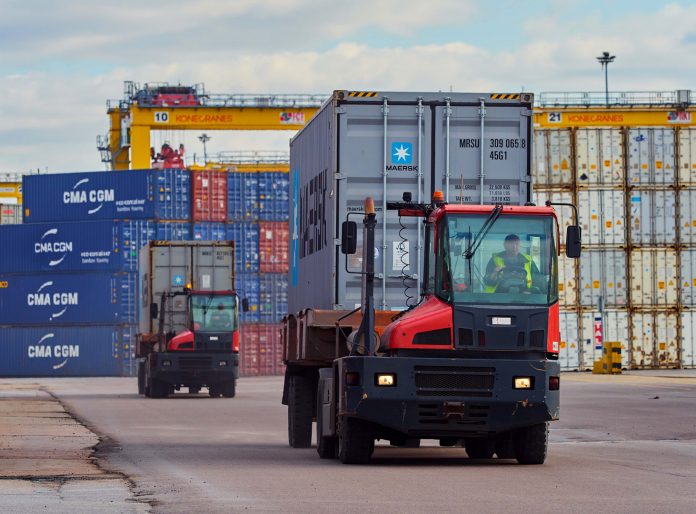Global Ports Group’s First Container Terminal (FCT) has become the first Russian terminal to transfer to a fully paperless export management system when it launched a service for the digital issuance of orders for the loading of export containers.
The Group’s new service was tested in early June at Turukhtanny customs post with clients, VMT and Rayontrans, as participants in the experiment.
The proprietary technology enables the digital exchange of legally binding documents with the customs authority and, according to the announcement, is based on Global Ports’ customer portal and Sea Port’s Portal software functionality.
Global Ports explained in its statement that the adoption of this technology means that the procedure of order preparation by forwarding companies and issuance of documents confirmed by customs has been completely digitalised.
On the basis of an order issued in this way, the terminal may start loading a container onto a vessel immediately without additional approval. All participants of the process – the forwarding company, the customs authority, the terminal and the shipping line – have online access to information about the status at all stages of the process.
The use of this new technology, and subsequent removal of paperwork, will, therefore, decrease the time required to handle a shipment of export containers and will greatly simplify the interaction between the process participants, according to Global Ports.
“Shipment orders remained the last “paper” element in export shipments,” noted Alexey Yermolin, Global Ports IT (Information Technology) director. “Now, an export shipment may be ordered and traced on our customer portal. The technology we use guarantees data protection and integrity of data after it is entered into the electronic document flow system.”
During 2020, the service will be rolled out across all Global Ports terminals in Russia, Global Ports confirmed. The technology will also be developed, according to a statement, to include shipping lines’ functionality into the system, which will allow the digital preparation of documents that foreign economic activity players require to confirm the zero VAT (value-added tax) rate application.







